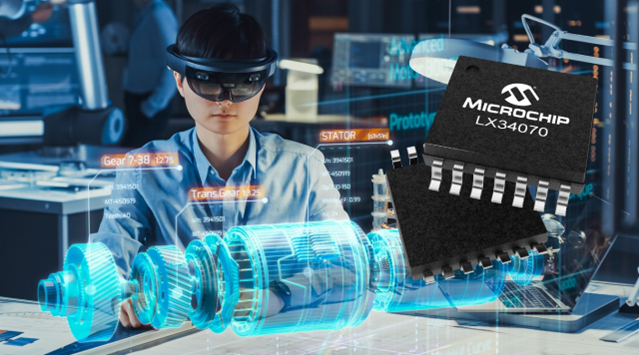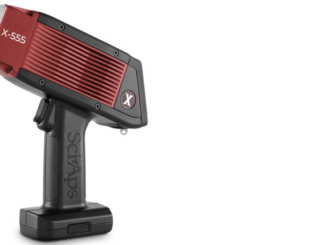
Developers of some motor control systems are finding it advantageous to replace Hall Effect position sensors and older magnetic resolver solutions with inductive alternatives that eliminate expensive magnets and other heavy transformer-based structures so they can be integrated onto printed circuit boards. Extending its broad line of inductive position sensors, Microchip Technology has introduced a new inductive sensor that has been purpose-built for controlling EV motors.
“The LX34070 inductive position sensor enables lighter, smaller, more reliable motor control solutions that meet stringent safety requirements, reduce overall system costs, and can operate seamlessly and precisely in the noisy environment of an automobile’s DC motors, high currents and solenoids,” says Fanie Duvenhage, vice president of Microchip’s mixed signal and linear analog business unit. “Designers can use the LX34070 to further streamline EV motor control designs by pairing it with other devices including our 8-bit AVR and PIC microcontrollers, our 32-bit microcontrollers, and our dsPIC digital signal controllers.”
Microchip says that it expects the IC to help accelerate the global move away from expensive and less accurate magnet-based solutions for safety-critical EV motor position monitoring. By using PCB traces rather than transformer-based magnetic windings and coil structures, the device has negligible size and mass compared to alternatives that weigh as much as a pound. Accuracy is improved since it does not depend on magnet strength, and the device improves robustness by actively rejecting stray magnetic fields.
PCB-based inductive position sensors use a primary coil to generate an AC magnetic field that couples with two secondary coils. A small metal target object disturbs the magnetic field so that each secondary coil receives a different voltage whose ratio is used to calculate absolute position. Using these techniques, Microchip introduced its first high-volume inductive sensor for automotive and industrial applications over a decade ago and has many programs in volume production. The new product brings the same proven PCB materials, approaches and simplified, low-cost packaging to EV motor control and other applications that require high speed and low latency. See www.microchip.com.



